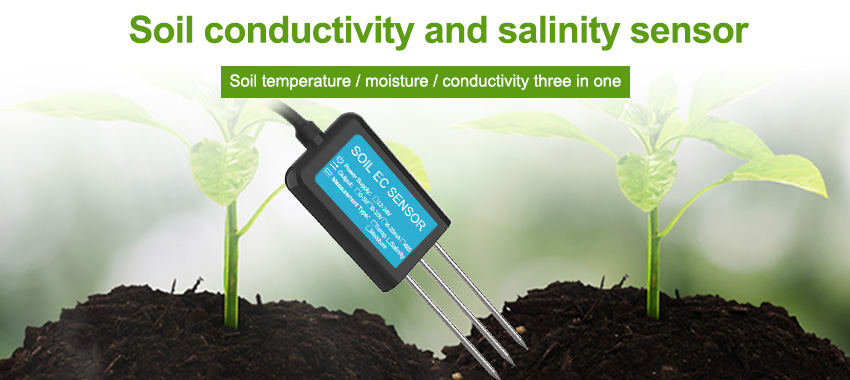The agricultural industry is undergoing a transformation driven by technological advancements, and one of the key components of this revolution is the integration of soil sensor data in farming practices. Smart farming, also known as precision agriculture, leverages cutting-edge technologies to optimize crop production, minimize resource wastage, and enhance sustainability. In this article, we will explore the role of soil sensor data in revolutionizing agriculture, its applications, benefits, and the potential impact on the future of farming.

Soil sensor technology allows farmers to monitor and analyze crucial soil parameters such as moisture levels
temperature, pH, nutrient content, and salinity in real-time. By deploying an array of sensors across their fields, farmers can gather comprehensive data about the soil conditions, enabling them to make informed decisions regarding irrigation, fertilization, and crop management. This data-driven approach empowers farmers to implement targeted interventions, precisely tailored to the specific needs of each area within their fields, thereby optimizing resource utilization and maximizing yields.
The integration of soil sensor data in agriculture offers a myriad of benefits
both for farmers and the environment. By accurately assessing soil moisture levels, farmers can adopt precise irrigation strategies, avoiding overwatering or under-watering, which can lead to water conservation and reduced operational costs. Furthermore, the ability to monitor soil nutrient levels enables farmers to apply fertilizers judiciously, minimizing excess application and potential environmental pollution while maintaining crop health. Additionally, the data collected from soil sensors can be utilized to detect patterns and trends in soil behavior, empowering farmers to anticipate and mitigate issues such as soil degradation, erosion, and nutrient depletion.
The impact of soil sensor data on the future of farming extends beyond immediate operational improvements
As the world’s population continues to grow, the demand for food is expected to rise significantly. Smart farming technologies, including soil sensors, have the potential to address this challenge by increasing agricultural productivity and sustainability. By harnessing the power of data analytics and machine learning, farmers can gain deeper insights into soil dynamics, crop performance, and environmental factors, leading to the development of more efficient and resilient farming practices.
Moreover, the adoption of smart farming technologies can contribute to the overall modernization of the agricultural sector, attracting a new generation of tech-savvy individuals to engage in farming. The convergence of agriculture and advanced technologies presents an opportunity to revolutionize the perception of farming, positioning it as a dynamic and data-driven industry that aligns with the digital age.

In conclusion, the incorporation of soil sensor data in agriculture marks a significant milestone in the ongoing smart farming revolution. By harnessing the power of data-driven insights, farmers can optimize resource management, enhance productivity, and promote environmental sustainability. As technology continues to evolve, the potential for further innovations in smart farming remains promising, paving the way for a more efficient, resilient, and sustainable agricultural future.
